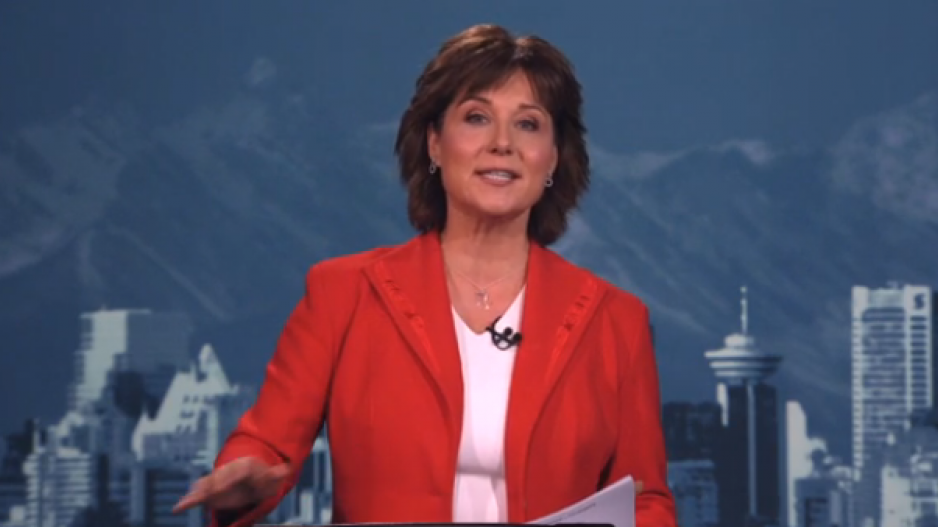Former premier Christy Clark has announced her resignation as leader of the Liberal Party.
“Today, I informed my caucus colleagues of my intention to resign as leader of the BC Liberal Party effective Friday, August 4,” Clark said in a written statement.
“I am so proud of everything our Liberal team has accomplished,” her statement reads.
“From working to make British Columbia Canada’s leading economy and creating more than 200,000 new jobs, to helping thousands of single parents go from welfare to work through the single Parent Employment Initiative, to British Columbia’s gift to the world, the protection of the Great Bear Rain Forest.”
The Liberal caucus has named Rich Coleman as interim leader.
Former Liberal MLA and attorney general Barry Penner said there had been some signals earlier this week that Clark might resign. Shadow cabinet appointments were expected to be made earlier this week, but weren’t.
"There were signs that this was coming, but it's still something of a surprise when you see it in writing," Penner said.
The Liberal caucus is currently at a two-day caucus meeting in Pentiction that started Thursday, July 27.
“The immediate question is who might be the interim leader and perhaps they might sort that out today,” Penner said.
Clark’s Liberals were dealt a crippling blow in the May 9 provincial election, when they failed to secure a majority government. After winning a slender majority of 43 seats to the NDP’s 41, Clark’s government then lost power to a Green-NDP alliance.
Liberal Party president Sharon White said in a statement that the party has 28 days to set a date for a leadership vote.
The news was a disappointment for some who praised Clark's job running the province.
“She had a very strong record of accomplishment and has a lot to be proud of,” said Chris Gardner, who is the president of the Independent Contractors and Businesses Association.
“Unfortunately with the result of the last election and the BC Liberals are in opposition and I don’t think there’s the prospect of an election in B.C. any time soon.”
He added that Clark’s success winning the 2013 provincial election, which few thought she could do, came because she provided a positive sense of renewal.
“Parties need to renew themselves,” he said.
Clark took over as BC Liberal leader in February 2011 after winning the party's leadership election.
University of British Columbia political science professor Max Cameron told BIV that he was not surprised by the move.
“She could have managed a comeback had she managed the post-election period better,” he said.
“Having decided to try to form a government, knowing full well that it would be brought down in a vote of non-confidence, and having introduced that throne speech, which was such a reversal of her position on a range of issues, I think it seems natural that the BC Liberal Party would want to hit the reset button, bring in a new leader and either return to where they were before that whole fiasco or pick a new direction. Certainly a fresh start is in order.”
He said that she will be remembered as somebody who governed effectively for years but “stumbled as she left the stage.”
Cameron suggested that current MLAs who could run for leader include Andrew Wilkinson, Mike De Jong, Rich Coleman and Sam Sullivan. Outside caucus, former cabinet ministers George Abbott and Kevin Falcon could run for leader, he added.
“Falcon was quite critical of her immediately after the election,” said Cameron.
In a poll conducted at the end of June, Insights West found a majority of British Columbians, including those who voted Liberal, said they would be happy to see a new leader.
Insights West pollster Mario Canseco said Clark's last throne speech, which cribbed from Green and NDP platforms, were viewed by many Liberals as a cynical ploy to hold onto power and a betrayal of Liberal principles.
"What we saw in our polling, especially after the throne speech, was a lot of B.C. Liberal voters were dissatisfied with the throne speech and the fact that the Liberals embraced the policies of the opposition," Canseco said. "They were worried about the future of the party and 53% of people who voted Liberal were telling us it's time for a new leader."
With files from Glen Korstrom




